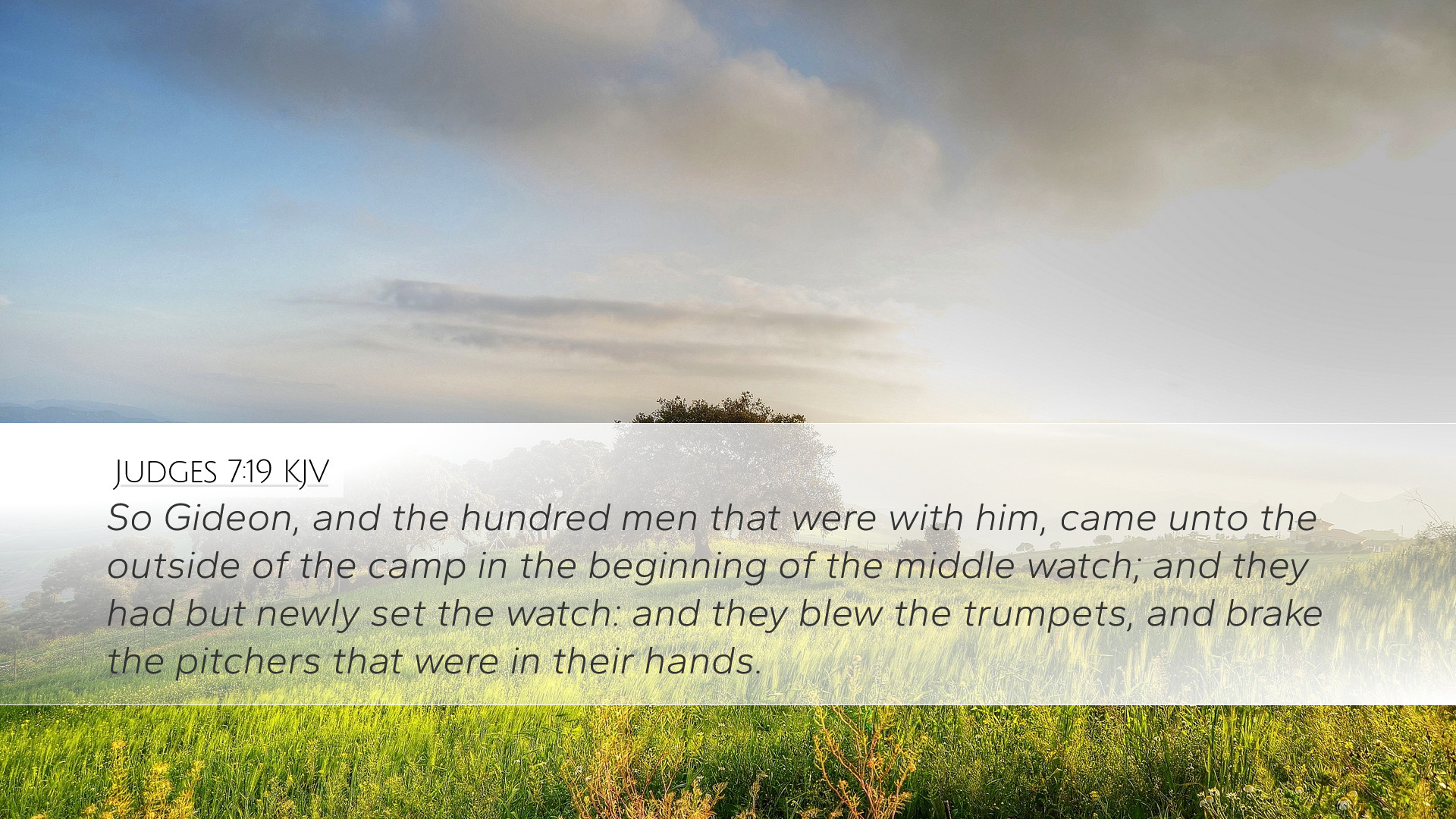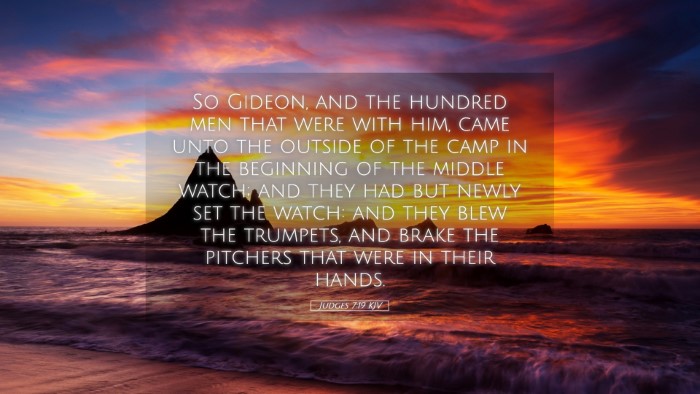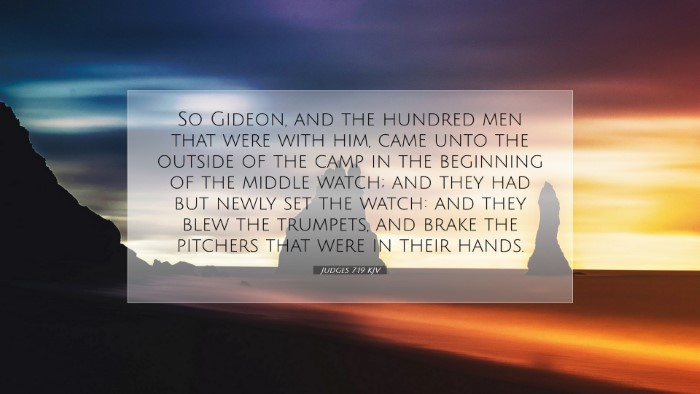Old Testament
Genesis Exodus Leviticus Numbers Deuteronomy Joshua Judges Ruth 1 Samuel 2 Samuel 1 Kings 2 Kings 1 Chronicles 2 Chronicles Ezra Nehemiah Esther Job Psalms Proverbs Ecclesiastes Song of Solomon Isaiah Jeremiah Lamentations Ezekiel Daniel Hosea Joel Amos Obadiah Jonah Micah Nahum Habakkuk Zephaniah Haggai Zechariah MalachiJudges 7:19
Judges 7:19 KJV
So Gideon, and the hundred men that were with him, came unto the outside of the camp in the beginning of the middle watch; and they had but newly set the watch: and they blew the trumpets, and brake the pitchers that were in their hands.
Judges 7:19 Bible Commentary
Commentary on Judges 7:19
The verse in Judges 7:19 captures a pivotal moment in the narrative of Gideon and the Israelites’ struggle against the Midianites. It states:
"So Gideon and the hundred men who were with him came to the outskirts of the camp at the beginning of the middle watch, just as they had posted the watch; and they blew the trumpets and broke the pitchers that were in their hands."
Contextual Background
This verse falls within the broader context of the Israelite deliverance led by Gideon. The pertinent historical backdrop involves Israel's oppression by the Midianites, where Gideon is raised up as a judge to lead a small band of warriors against a significantly larger force. Gideon's strategic approach, as prescribed by God, emphasizes the importance of God's presence and power over numerical superiority.
Insights from Commentators
Matthew Henry
Henry emphasizes the divine orchestration of events leading to Gideon’s triumph. He notes, "Gideon’s strategy was not merely military but symbolic, illustrating the spiritual warfare that every believer engages in." He highlights the significance of the “hundred men” in the verse, symbolizing a remnant of faithful followers, chosen to demonstrate God’s ability to save with few, rather than many. Furthermore, Henry points out that the timing of the attack at the “beginning of the middle watch” refers to a period of transition, aligning with the Biblical theme of God bringing change.
Albert Barnes
Barnes expands on the implications of Gideon’s actions, particularly the blowing of trumpets and breaking of pitchers. He explains that these actions are “meant to create confusion and panic” among the Midianites. The trumpets represent a call to arms and a declaration of war, while breaking the pitchers signifies a demonstration of breaking the power of the enemy. Barnes suggests that the unusual tactic serves to show that “victories often come through the most unexpected means when God is fighting for His people.”
Adam Clarke
Clarke provides a detailed examination of the methodology employed by Gideon, indicating that it was divinely inspired. He notes that “the use of sound and light is emblematic of God’s intervention, bringing glory to His name.” He comments on the indicators of fear and confusion among the Midianites as a direct result of Gideon’s obedience, reinforcing the idea that “the battle is the Lord’s.” Clarke underscores the fact that God deliberately reduces Israel’s army to ensure that the miracle would be attributed to Him alone, thereby deepening the theological understanding of divine deliverance.
Theological Implications
This single verse encapsulates the themes of faith, obedience, and divine intervention in the lives of God’s people. The actions of Gideon signify the necessity of following divine instruction, which sometimes goes against worldly wisdom. As such, this passage becomes a powerful reminder for pastors and theologians about the nature of God’s work through His people, often in ways that appear foolish or weak to the world.
Application for Contemporary Believers
Gideon’s story, especially encapsulated in Judges 7:19, serves as an encouragement for believers today. The faithfulness of God in guiding and equipping His people, even in dire circumstances, is a source of hope. This passage challenges contemporary believers to:
- Trust in God’s plans and methods, even when they seem illogical.
- Recognize the power of obedience to God’s command as a powerful tool for spiritual warfare.
- Understand that divine intervention often aligns with a relinquishing of control and trust in God’s sovereignty.
Conclusion
Judges 7:19 is rich with theological insight and practical application. It invites readers to reflect on the nature of God’s power as it works through those who are willing to obey His call. As pastors, scholars, and students of the Bible engage with this text, they are reminded of the fundamental truth that God is sovereign, and His ways are higher than our ways.


